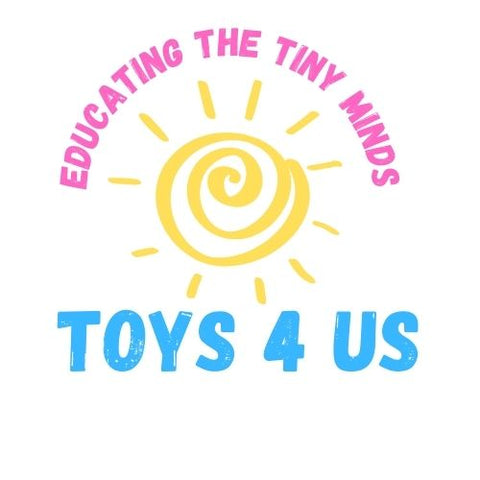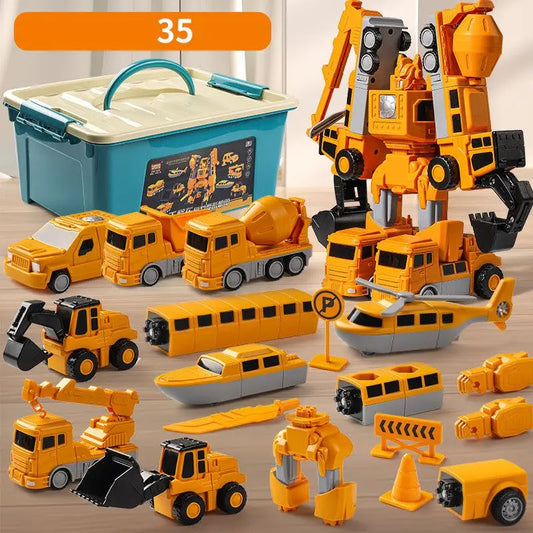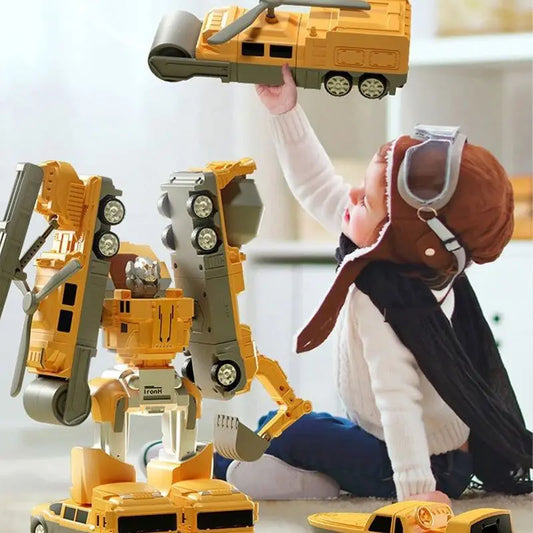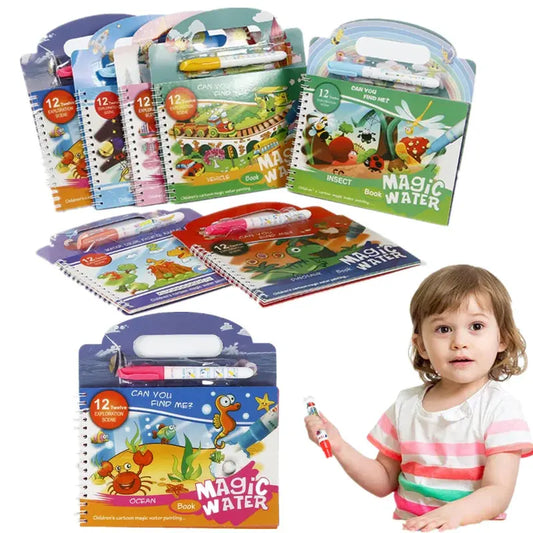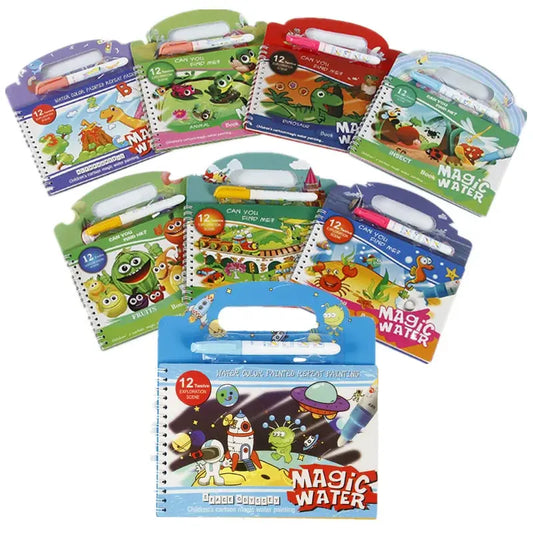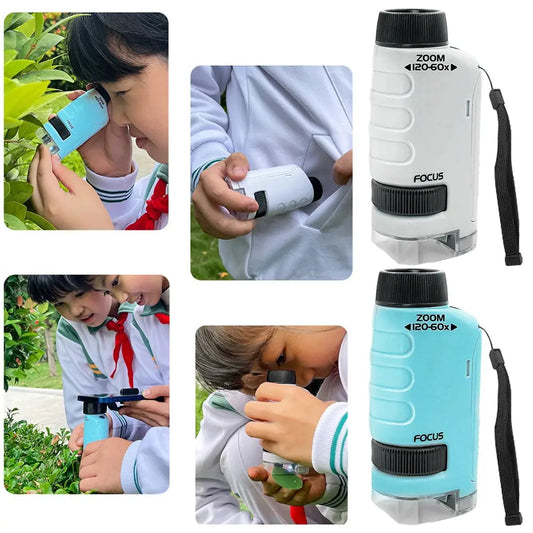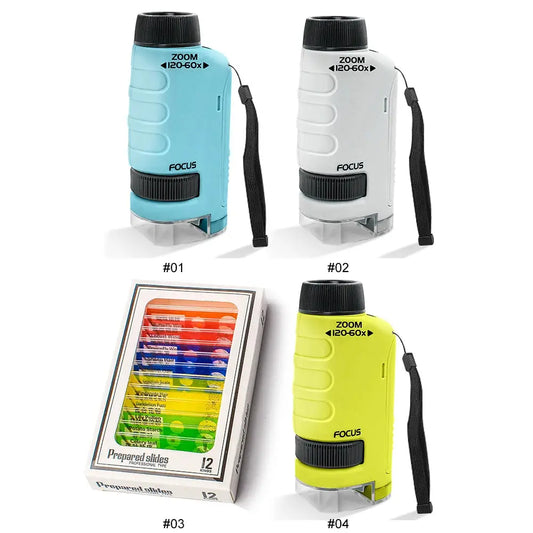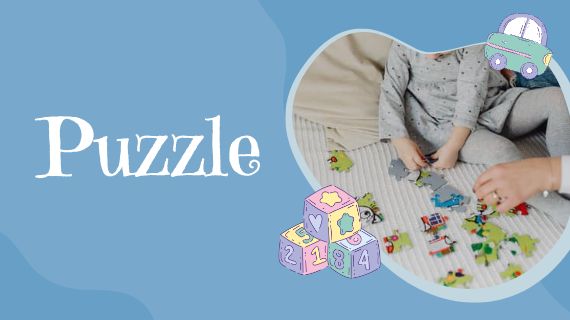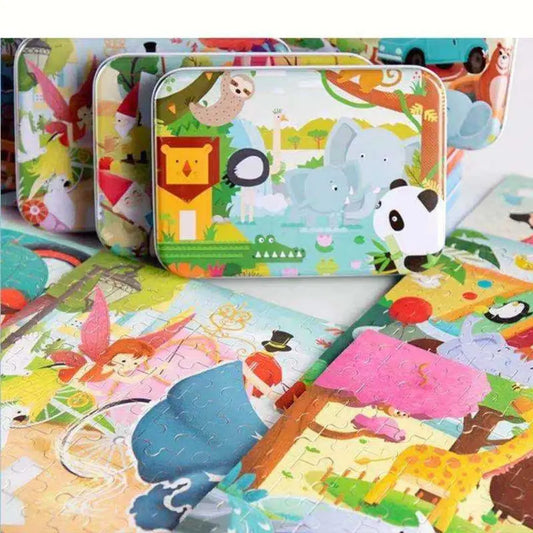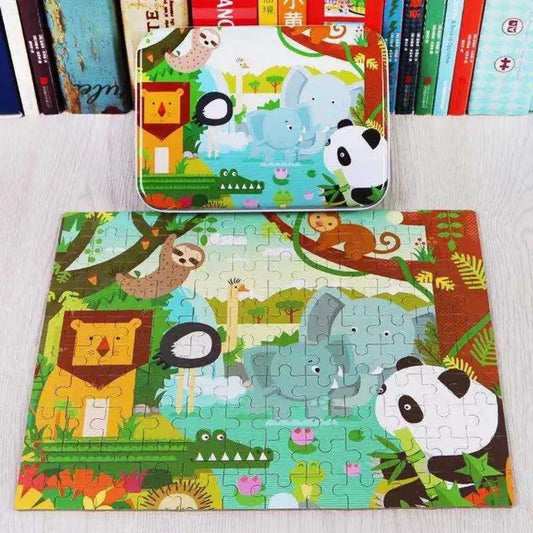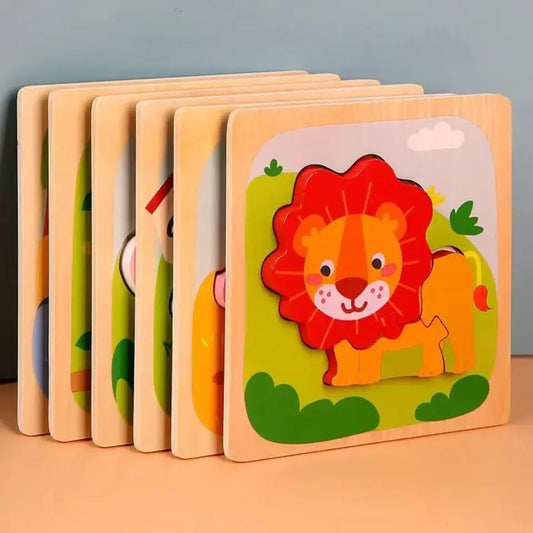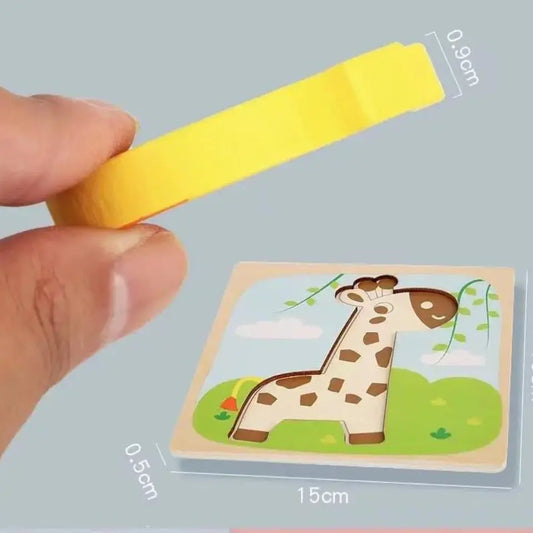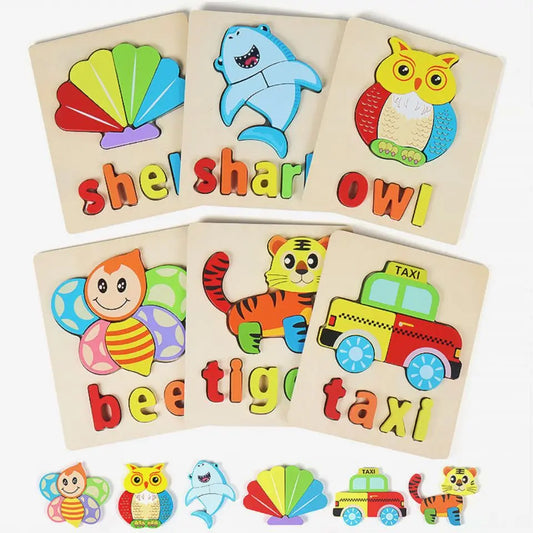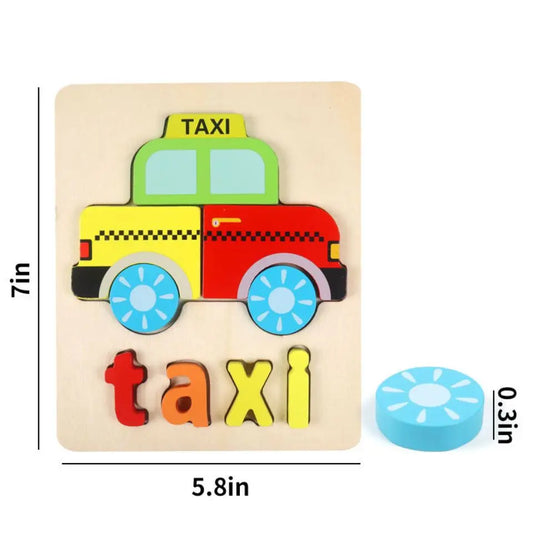The Science Behind Montessori Toys and Child : Montessori toys have become increasingly popular in Australia as parents and educators recognise their role in supporting child development. These toys, based on the principles of the Montessori method developed by Dr. Maria Montessori, are designed to enhance children’s learning experiences through hands-on and self-directed play. In this Guide to Montessori Toys in Australia, we explore how these toys impact a child’s growth, from developing cognitive and motor skills to promoting independence and problem-solving abilities. Understanding The Benefits of Montessori Toys is essential for anyone looking to create an environment that nurtures curiosity and a love for learning. At Montessori Toys Australia, our focus is on providing resources that align with a child’s natural developmental needs, ensuring children learn through meaningful, active engagement.
The design of Montessori toys is simple yet purposeful, reflecting their aim to support different aspects of child development. These toys are crafted from natural materials, encouraging children to use their senses to explore shapes, textures, and sounds. This hands-on approach allows children to gain a better understanding of their surroundings while improving fine motor skills and cognitive abilities. For example, toys like stacking rings and wooden puzzles help children develop coordination and focus, while sensory toys engage their senses, promoting deeper awareness and understanding. By engaging children in self-directed activities, Montessori toys foster independence, allowing them to solve problems and learn at their own pace.
The Principles of Montessori Education and Their Impact on Toy Design
Montessori education, developed by Dr. Maria Montessori, is based on the idea that children learn best when they can explore their environment freely and independently. Unlike traditional methods that focus on passive learning, the Montessori method emphasises active, hands-on experiences. Central to this approach are toys that engage children’s senses, promote concentration, and encourage problem-solving.
The science behind Montessori toys is rooted in several core principles:
-
Independence and Self-Directed Learning: Montessori toys are designed to allow children to explore and interact with them without constant adult guidance. This promotes independence and helps children build confidence in their abilities.
-
Sensory Exploration: Many Montessori toys focus on stimulating the senses, such as touch, sight, and sound. By engaging the senses, these toys help children make sense of the world around them, supporting sensory and cognitive development.
-
Order and Simplicity: Montessori toys are often simple in design, focusing on one or two developmental goals. This simplicity encourages children to focus and work with intention, promoting concentration and mindfulness.

Cognitive Development Through Montessori Toys
Cognitive development involves the growth of thinking skills, including memory, problem-solving, and attention. Montessori toys play a crucial role in fostering these abilities by providing children with challenges that require active engagement and thought.
1. Problem-Solving and Critical Thinking
Montessori toys like puzzles and stacking blocks are excellent examples of how play can enhance cognitive skills. When children work with these toys, they are required to think critically, test hypotheses, and solve problems. For example:
-
Puzzles: Solving a puzzle requires children to understand shapes, patterns, and how pieces fit together. This not only improves spatial awareness but also teaches them how to approach and solve problems systematically.
-
Building Blocks: Building with blocks encourages children to experiment with balance, structure, and symmetry. By figuring out how to stack and align blocks, children learn the principles of cause and effect, which are essential for logical thinking.
These activities help children develop memory, attention to detail, and the ability to work through challenges independently—skills that are fundamental to their cognitive growth.

2. Mathematical Concepts and Spatial Awareness
Montessori toys also support the development of early mathematical concepts. Toys like counting beads, shape sorters, and number rods introduce basic math skills such as counting, sorting, and comparing. Through these activities, children build a foundation for understanding numbers, patterns, and spatial relationships.
-
Shape Sorters: These toys teach children to recognize and differentiate between various shapes, helping them develop visual and spatial awareness.
-
Counting Beads: By manipulating beads, children practice counting and grouping, laying the groundwork for arithmetic skills.
The simplicity and hands-on nature of these toys allow children to learn math concepts in a concrete and meaningful way, which is more effective than abstract teaching methods.
Physical Development and Motor Skills
Physical development, especially fine motor skills, is another critical area where Montessori toys play an important role. Fine motor skills involve the coordination of small muscles, particularly those in the hands and fingers, which are crucial for tasks like writing, buttoning, and using utensils.
1. Fine Motor Skill Development
Montessori toys such as threading beads, pegboards, and stacking rings are designed to strengthen these small muscles and improve hand-eye coordination. These toys require children to use precise movements, which builds dexterity and control.
-
Threading Beads: As children work to thread beads onto a string, they refine their pincer grasp, which is important for writing and other tasks that require finger strength.
-
Stacking Rings: By placing rings onto a peg, children practice coordination and control, learning how to manipulate objects with accuracy.
These activities not only enhance motor skills but also encourage concentration and patience, as children must focus to complete these tasks.

2. Gross Motor Skills and Physical Coordination
Gross motor skills, which involve larger muscle groups used for activities like walking, balancing, and climbing, are also supported by Montessori toys. Balance boards, climbing structures, and other movement-based toys encourage children to explore their physical capabilities.
-
Balance Boards: These toys challenge children to maintain balance, improving their stability and coordination.
-
Climbing Structures: Safe, low climbing structures allow children to test their strength and balance while developing muscle control and confidence.
By integrating physical play with learning, Montessori toys promote the development of a healthy, active lifestyle from an early age.
Sensory Development and Its Role in Learning
Sensory play is a fundamental aspect of Montessori education, as it helps children make sense of their environment through touch, sight, sound, and movement. Sensory development is crucial for cognitive growth, as it builds neural pathways in the brain that are essential for learning.
Montessori toys that focus on sensory experiences include:
-
Texture Boards: These boards feature different materials, such as fabric, wood, and sandpaper, that children can touch. Exploring these textures helps develop sensory awareness and fine motor skills.
-
Sound Cylinders: These toys contain materials that produce different sounds when shaken, helping children develop auditory discrimination and focus.
By engaging children’s senses, these toys encourage them to explore their surroundings, make connections, and understand the world in a deeper, more meaningful way.
Emotional and Social Development Through Montessori Toys
Beyond physical and cognitive growth, Montessori toys also support emotional and social development. Many toys are designed for collaborative play, helping children build social skills such as sharing, communication, and empathy.
1. Encouraging Independence and Confidence
Montessori toys encourage children to engage in self-directed play, allowing them to explore at their own pace and develop autonomy. By completing tasks independently, such as stacking blocks or solving puzzles, children build self-confidence and a sense of accomplishment.
- Practical Life Toys: These toys, such as child-sized cleaning sets or kitchen tools, allow children to imitate everyday activities. This not only teaches them valuable life skills but also promotes a sense of independence and responsibility.
2. Building Social Skills
Some Montessori toys are designed for group interaction, helping children develop communication skills and learn the importance of cooperation. Activities like collaborative puzzles or role-playing sets encourage children to work together, share, and solve problems as a team.
By fostering both independence and social engagement, Montessori toys prepare children for future challenges, both in school and in life.
Why Montessori Toys Are Scientifically Effective
The science behind Montessori toys lies in their ability to align with a child’s natural development. Research shows that children learn best when they are actively engaged, and Montessori toys provide opportunities for hands-on learning that stimulates brain development. By allowing children to explore, experiment, and solve problems on their own, these toys promote critical thinking and creativity—skills that are essential for lifelong success.
Montessori toys also support the development of executive functions, such as planning, organising, and self-regulation. These toys encourage children to manage their actions and focus on tasks, building the foundation for skills that are crucial in academic and social settings.
Conclusion: The Science Behind Montessori Toys and Child Development
Montessori toys are more than just educational tools; they are scientifically designed to support every aspect of a child’s growth. From enhancing cognitive skills to promoting physical coordination and emotional resilience, these toys provide a comprehensive approach to development that aligns with the natural learning process of children.
By understanding the science behind Montessori toys, parents and educators can make informed choices that support children’s learning and development. Whether at home or in a classroom, Montessori toys offer a meaningful, effective way to help children grow into confident, capable individuals. Through the thoughtful selection of these toys, children can explore their world, develop essential skills, and build the foundation for lifelong learning.

